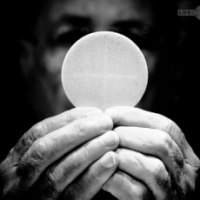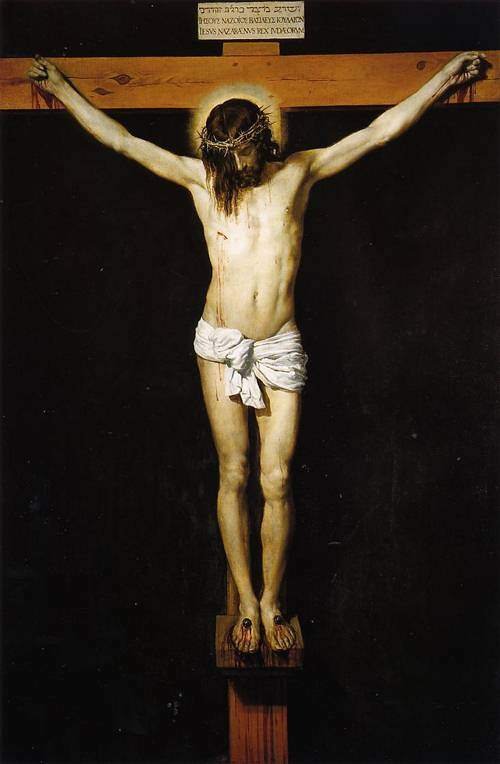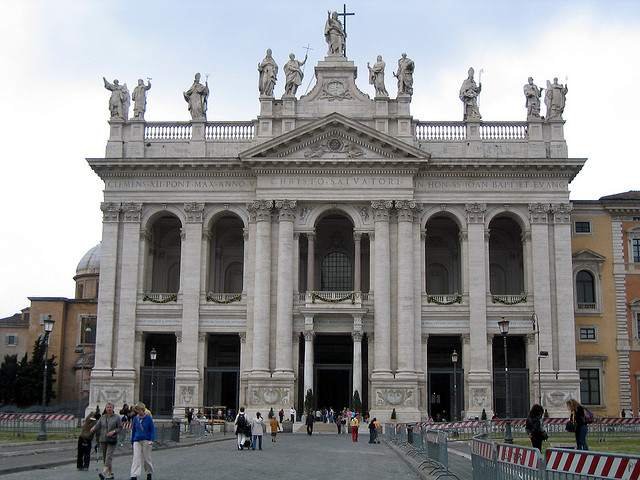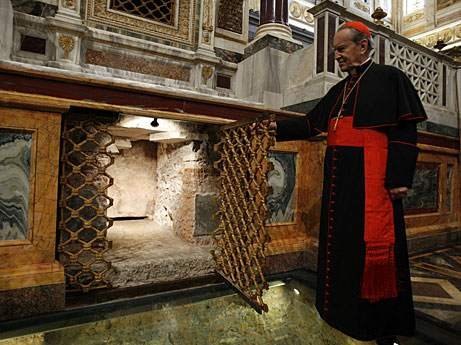I wondered if receiving the Real Presence would feel any different than any other time I’d taken Communion in my life.
I wondered if the Sacrament of Confirmation would evince any inward or outward change in me — if I would feel that, too.
Through the years of confusion I experienced as a Pentecostal, I learned to be very distrustful of my emotions. If I feel a sensation, I wondered, can I rightly ascribe it to God? By what justification? How do I know it’s God, and not my own self-stimulation? Because I know well how easy it is to drive myself to feel, even to believe, things that I dearly want to feel and believe. How do I know if it’s real?
It all, of course, comes down to faith. What can be observed empirically and proven objectively about God never quite reaches all the way across the chasm of unbelief. There has to be a leap of faith* — and I’m pretty sure this is by design. No matter how much God reveals about Himself, He always leaves that ever-so-slight gap, foiling any attempt at absolute proof. Because of what value would faith be if everything about God could be explained and proven — if the existence of God and the truth of Christ were as certain as the physics of the sun and the moon? How could believers be a people set apart if every scientist and every joe on the street had to believe, however grudgingly, or if God were as obvious and as commonplace as Barack Obama? How could we trust God with faith like a child if we could pin Him to a specimen board and probe Him with all our powers of scientific observation?
(* I am told Kierkegaard wrote about this “leap of faith” and in fact coined the phrase, but I’m not much of a philosopher and haven’t read Kierkegaard — though I’d like to.)
And this is where, I think, there’s room for experience and emotion — especially for people like me who experience strong emotions. I cannot found my faith on emotion — this for years has been my greatest fear: to build my faith on the shifting sand of emotion, and to have it all collapse out from under me yet again. But if emotion, deep feeling, sensibility to the stirrings of the heart, is a gift that I’ve been given — can it not be another set of eyes, one more lens to edge me yet a little closer across that chasm?
I also have a rational brain and acute intellectual tools — but these are faculties I’ve had to build and cultivate and train; my natural inclination is to follow my heart. I have had to discipline my heart and my mind; temper my strong emotions with the moderation of reason. I hear so many reactionary Christians lash out against academia and education in fear and anger — but this is what the academy has done for me: not destroyed my faith, but given me the implements to build a sturdier and more secure foundation for God to base my faith on. My faith is stronger and more unshakable, by worlds, than at any moment of the fervency of my youth; and paradoxically, by equal measure, it’s also more passionate and deeply felt. When I believe with my reason that the object of my faith is real, then I am free to feel with my heart all the love and joy and peace with which I have been blessed. When my faith is founded upon what I know and can observe and can reason, then emotion becomes the beautiful and glorious ornament built on top that reaches even higher: all of my most soaring effluences of feeling become exultant spires raising to the heavens.
So did it feel different? Yes, it did! I went back to my pew, ruminating on what had just happened: I had just consumed, taken into my body, the true, real, physical Body and Blood of my Redeemer. I had joined my flesh to His flesh and my spirit to His Spirit; I had communed in His very elements; I had been touched by God. And it felt like the most intimate thing I had ever experienced. The most beautiful, most precious feeling I had ever felt: a feeling of total love and absolute acceptance.
And my Confirmation: “Be sealed with the Gift of the Holy Spirit,” Father Joe spoke. The Sign of the Cross on my forehead: the oil of chrism marking me as Christ’s for all eternity. It was the sweetest smell I had ever smelled in my life; I didn’t want to wash my face that night, but even after I did, I could still smell it. I could still feel the mark there; I still can. It felt like the most precious kiss of heaven: a sign, both temporal and eternal, of love and belonging and protection; a brand identifying me as Christ’s and binding me to His Church, a member of His flock for all time. Now, I believe I have known the Holy Spirit for quite some time: but this most certainly marked a fresh and special outpouring; a total immersion in His grace. And I feel like a completely different person.






